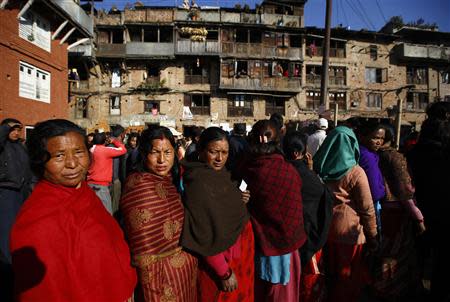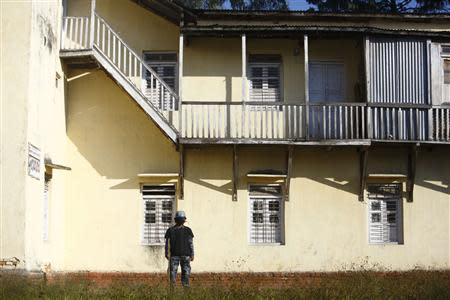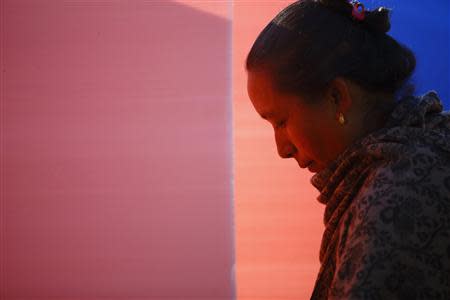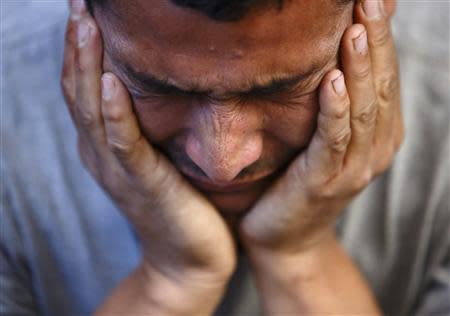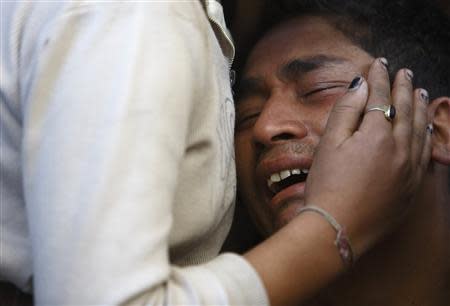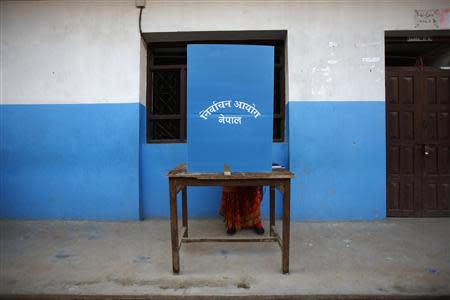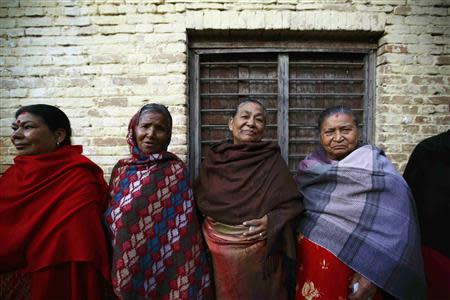Nepalis give politicians another chance, vote for charter assembly
By Gopal Sharma PANGA, Nepal (Reuters) - Millions of Nepalis voted on Tuesday for an assembly that will draft a constitution aimed at ending years of instability but their ballots may not produce a conclusive result and could leave the country facing more turmoil. Nepal's giant neighbors, India and China, have grown increasingly concerned about its prolonged struggle to build a stable republic to replace a centuries old monarchy that was toppled at the end of a 10-year revolt by Maoist rebels. The fear is that the poor, mountainous country of nearly 27 million people, which is dependent on tourism, remittances and aid, will drift without effective government and become a haven for militants and criminal gangs. On Tuesday, a bomb exploded near a polling station in the capital, Kathmandu, wounding a boy, police said. A 33-party alliance led by a breakaway group of Maoists, who took up politics after ending their guerrilla war in 2006, called for a boycott. The streets of Kathmandu, a temple-studded city set in a Himalayan valley flanked by peaks, were deserted except people walking to polling stations and children playing soccer, as the government ordered all vehicles off the roads for election day. Police fired in the air in three districts in the west and east of the country after unidentified men tried to snatch ballot papers. A woman was injured. Clashes between political workers were also reported in several places but the Home Ministry and an EU observer team said there had been no major violence by the time the polls closed. The Election Commission said nearly 65 percent of eligible voters turned out to elect the 601-member constituent assembly that will act as a parliament and establish a government until a charter is ready. The high turnout showed hope for change despite the failure of a previous attempt to draw up a constitution after a 2008 election. That time, representatives were unable to agree on the form of government and the number of states to be carved out of the ethnically diverse country. FRAGMENTED With 122 political groups taking part this time, the new assembly will likely be more fragmented than ever, said a former foreign minister, Ramesh Nath Pandey. One of the parties campaigning for a return of a constitutional monarchy and restoration of Nepal as a Hindu state is expected to improve on its four members, complicating the drafting of a secular, democratic constitution. "If the small parties, especially the one-man parties, get 20 to 25 seats, the constituent assembly will be in trouble and 2014 is going to be a difficult year," Pandey said. Annual economic growth has slowed to about 3.5 percent over the past five years, a long way behind growth in India and China, and too insipid to absorb the half a million young people entering the job market each year. Every day, about 1,600 Nepalis, most of them young and unskilled, leave for work, mostly in the Middle East, Malaysia and South Korea. Remittances account for more than 20 percent of gross domestic product. Bimal Koirala, a former chief secretary, or top civil servant, said there were no signs of a pickup in investment and he expected growth to slow down. "All that the political parties are interested in is to rush to power," Koirala said. Nepal has had five governments in as many years as bickering politicians have formed and broken alliances. The Maoists were the largest bloc after the last election but they are expected to lose ground as their leader and former guerrilla commander, Pushpa Kamal Dahal, more commonly known as Prachanda, has faced criticism for straying away from their leftist ideals. "I voted for them the last time but they did not do anything good," said Buddha Maharjan, 64, a farmer in Panga, one of two constituencies near Kathmandu in which the Maoist leader was running. The vote count will begin on Wednesday but with many ballots having to be collected from remote areas, it is likely to take a week before a clear picture emerges. (Additional reporting and writing by Sanjeev Miglani; Editing by Robert Birsel)
